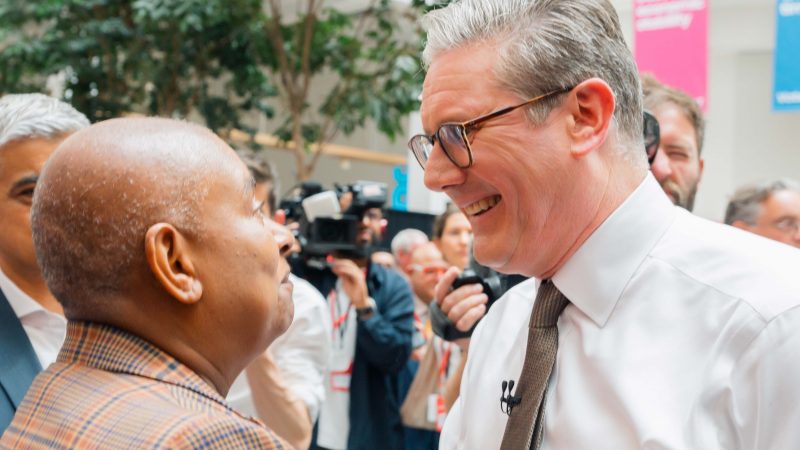
Under 5% of the policies in Labour’s 2024 general election-winning manifesto are “quick wins”, LabourList analysis of a new report suggests.
It comes after the government said this week it had already met its manifesto pledge of delivering two million more NHS appointments in its first year.
Think tank The New Britain Project took a deep dive into the 2024 manifesto, breaking down the commitments into categories.
Worryingly for the government, our analysis of the research suggests just 10 of the 222 policies the think tank pulled out of Labour’s manifesto are “quick wins”, or 4.5%.
Policies were evaluated based on visibility, ease of implementation, and the timeframe for delivering results.
A “quick win” is what the New Britain Project classes as an immediate, highly visible policy that can be delivered early to show voters that the government is working for them.
What should be marked as a “quick win” is inevitably subjective and likely contested, but some will wonder whether the findings give clues about Labour’s poll troubles, with a string of key policies like planning reform years away from being able to show results.
According to the think tank, 46, or 21%, of Labour’s policies are highly visible, and 54, or 23%, are difficult.
In a recent op-ed for LabourList, Anna McShane, director of the New Britain Project, said Starmer could learn from the way US President Donald Trump has signalled to voters that change is happening under his leadership.
She cited his use of a flurry of executive orders on his first day in power as particularly effective, highlighting the fact it wasn’t just about the policies – it was about sending a clear signal that change was happening.
“While his policies remain polarising, the effectiveness of this approach cannot be ignored. Labour, too, must prioritise action that people can see and feel if it is to restore trust in government. Labour already has a bold and ambitious agenda, but Trump’s example underscores the importance of delivering early, tangible results to show progress is underway.
“Large-scale change takes time, but early wins – policies that can be implemented quickly and have visible effects – are vital to building momentum and demonstrating competence.”
The ten “quick wins” were:
- Achieve full gigabit broadband coverage
- Fix 1 million potholes each year
- Tackle the cost of soaring car insurance
- Action on late payments to SME’s
- Introduce a mortgage guarantee scheme to support first-time buyers
- Raise minimum wage and remove age bands
- Block bonuses for executives of polluting water companies
- Respect Orders to ban persistent offenders from town centres
- Provide free breakfast clubs in every primary school
- End VAT exemption on private schools
You can find the report in full here.
Labour has been approached for comment.
For more from LabourList, subscribe to our daily newsletter roundup of all things Labour – and follow us on Bluesky, WhatsApp, Threads, X or Facebook .
- SHARE: If you have anything to share that we should be looking into or publishing about this story – or any other topic involving Labour– contact us (strictly anonymously if you wish) at [email protected].
- SUBSCRIBE: Sign up to LabourList’s morning email here for the best briefing on everything Labour, every weekday morning.
- DONATE: If you value our work, please chip in a few pounds a week and become one of our supporters, helping sustain and expand our coverage.
- PARTNER: If you or your organisation might be interested in partnering with us on sponsored events or projects, email [email protected].
- ADVERTISE: If your organisation would like to advertise or run sponsored pieces on LabourList‘s daily newsletter or website, contact our exclusive ad partners Total Politics at [email protected].





More from LabourList
‘Mor-gone but not forgotten’
Downing Street director of communications Tim Allan resigns
‘Treasury ‘Green Book’ reform is a game-changer for left-behind coastal towns’